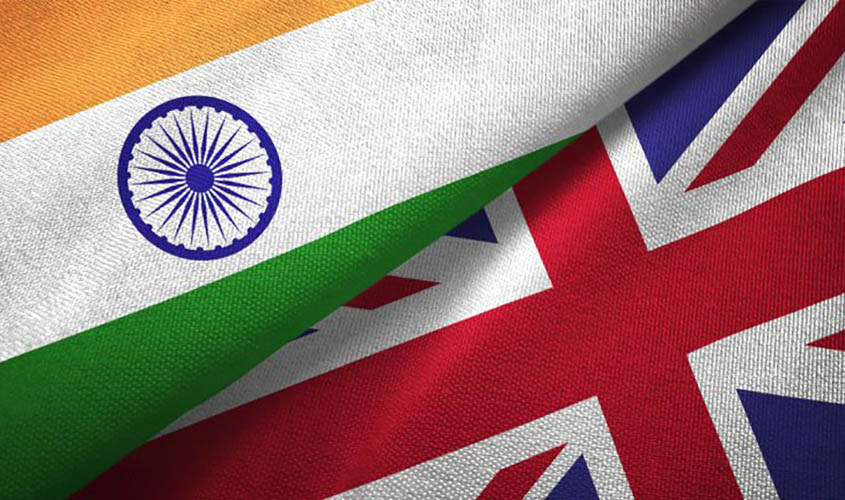UK’s exit from EU will affect Indian companies who service EU with a UK base.
LONDON: As Boris Johnson moves from successfully renegotiating his deal with the EU, to a general election, it is timely to look at what is at stake in this election. How should the rest of the world, and India in particular look at the UK and its Brexit process?
First, from a global perspective, a major G7 nation is adopting an independent trade policy for the first time in more than forty years. A shift on such a massive scale has never happened before and is unlikely to happen again.
It creates significant opportunities for entrepreneurial countries provided; they embrace some key policy proposals. Done badly, it could represent serious challenges for the UK and also for the global economy. The stakes, in short are tremendously high.
Second, the UK is reintegrating with the EU, and will have a different relationship with it going forwards. This does not need to mean massive disruptions in UK-EU trade, but there will be some changes. This will affect Indian companies who provide service to EU markets from a UK base. So what should India do to protect its own interests? I would suggest the following set of policy prescriptions:
1. India should argue that the UK and EU should have a best in class free trade agreement that protects its UK-EU supply chains. Since the UK wants to have such a deal, India should ensure that Brussels is receptive to reasonable UK proposals. In this respect India can find common cause with other nations similarly affected, such as Japan, the US, Korea, China and others. Brexit is too important to be left to the UK and EU. The globe has a stake in it.
2. India could accomplish much in an India-UK deal it was unable to accomplish with the EU. In particular, improved mode 4 services access, better visa treatments for its students, and better for India’s agricultural exports should be key Indian asks. The UK has much less strong defensive interests than the EU does, and the UK should be able to deliver these if its offensive interests can be accommodated. These are likely to centre around services access (especially legal and some aspects of financial services), as well as better treatment from a tariff and tax standpoint of its key scotch whisky exports.
3. India should help the UK in its newfound WTO role in ways that help its economy, particularly in the areas of services liberalisation where India has offensive interests.
4. India should also help the UK in re-invigorating the Commonwealth. While the Commonwealth is not, and should not aspire to be a trade bloc, it is a very important alignment of networked nations who share some fundamental characteristics such as common law systems, commitment to the rule of law, and commercial legal and regulatory environments. This is why there is a so-called Commonwealth effect where these nations tend to outperform their peer group (Commonwealth African countries tend to outperform non-Commonwealth countries, advanced developed Commonwealth countries such as Canada, the UK, Australia and NZ tend to outperform their Western European peer group). But the Commonwealth has not lived up to its potential to align its members more closely around particular goals.
The potential for a UK-India trade deal has been discussed for some time now, and various working groups have been established. There is huge potential here. India faces many restrictions in the UK as long as it labours under EU law. Basmati rice was recently banned in the EU because of its sanitary and phytosanitary rules. The EU’s SPS rules are a global outlier. The EU is in violation of WTO rules in a number of different sectors of agricultural trade. The UK should be strongly encouraged to diverge from such restrictive rules that damage the economies of developing nations. Many Indian exports face not only tariff barriers, but regulatory bans of one type or another. Much progress could be made here if the UK adopts different approaches to the EU.
It is ironic that it was Home Secretary Theresa May who did so much to slow the EU–India FTA with her opposition to opening up services trade across all modes of supply, including the movement of natural persons (Mode 4). But May is gone, both from the Home Office and from her premiership. The new UK government is much more open to business visas and recognises that in order to strike deals with India (or indeed Australia and NZ) it will need to be more open on a host of immigration related issues. The major objection to immigration in the Brexit vote was not immigration so much as the concept of European citizenship – that I could make in one EU member state and choose to move to another by virtue of my EU citizenship. This made it impossible for the UK to manage its borders and develop a sensible immigration policy. The current Home Secretary, Priti Patel’s openness to the Australian points system, or a needs based system of immigration bodes very well for the UK-India trade relationship.
So, there are many possible opportunities. But India must act now to achieve them. It cannot afford to wait. Tempting as it might be to say to the UK government, we will wait and see what your relationship is with the EU before we negotiate, that would be a fatal error. India, along with other major global players has an opportunity now to shape the policy of a newly independent trading nation. It is an opportunity that comes but once in a generation. It should not be wasted.
The writer is one of the world’s leading trade and competition lawyers, and is an advisor to governments and companies on trade issues.

